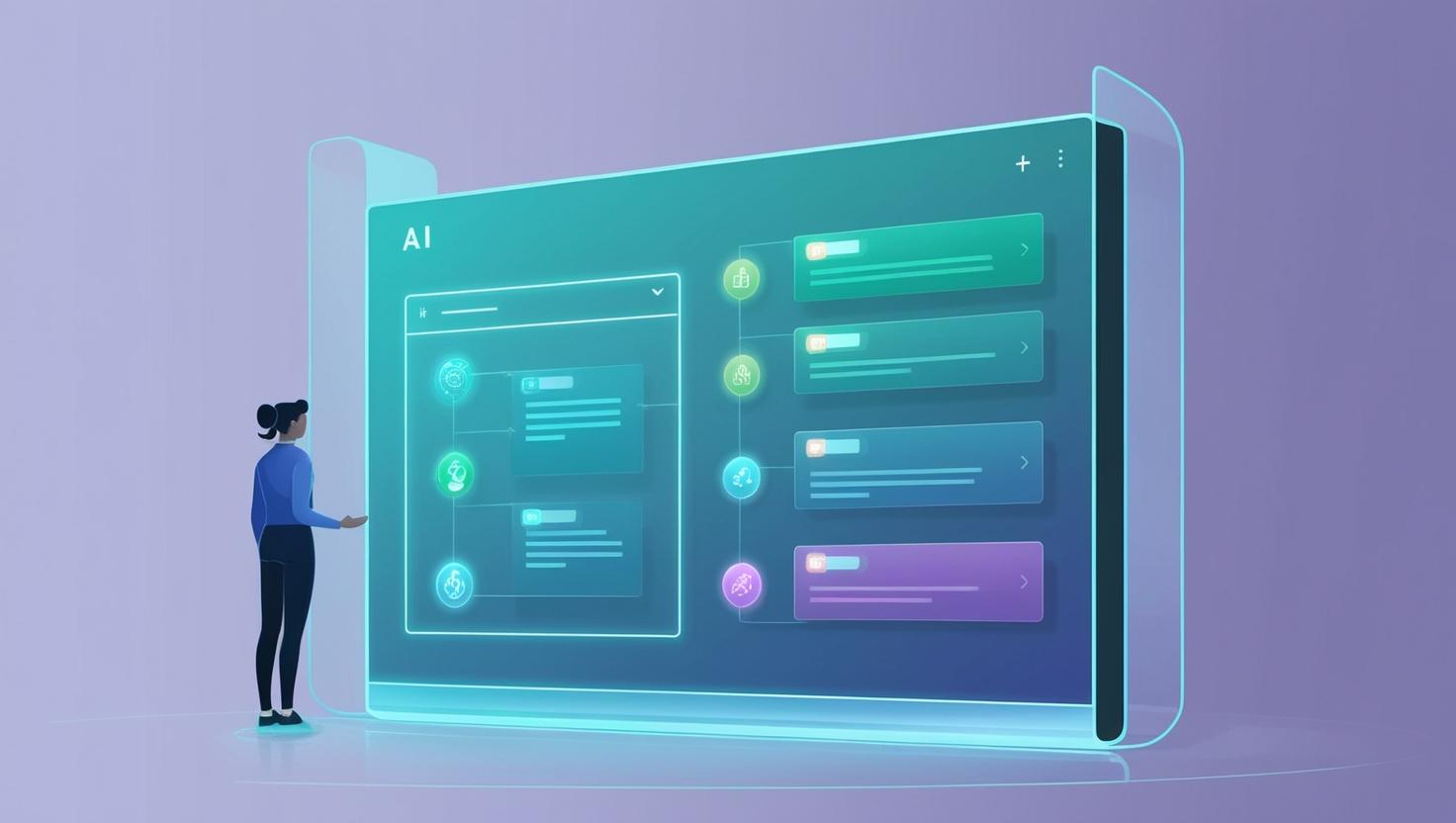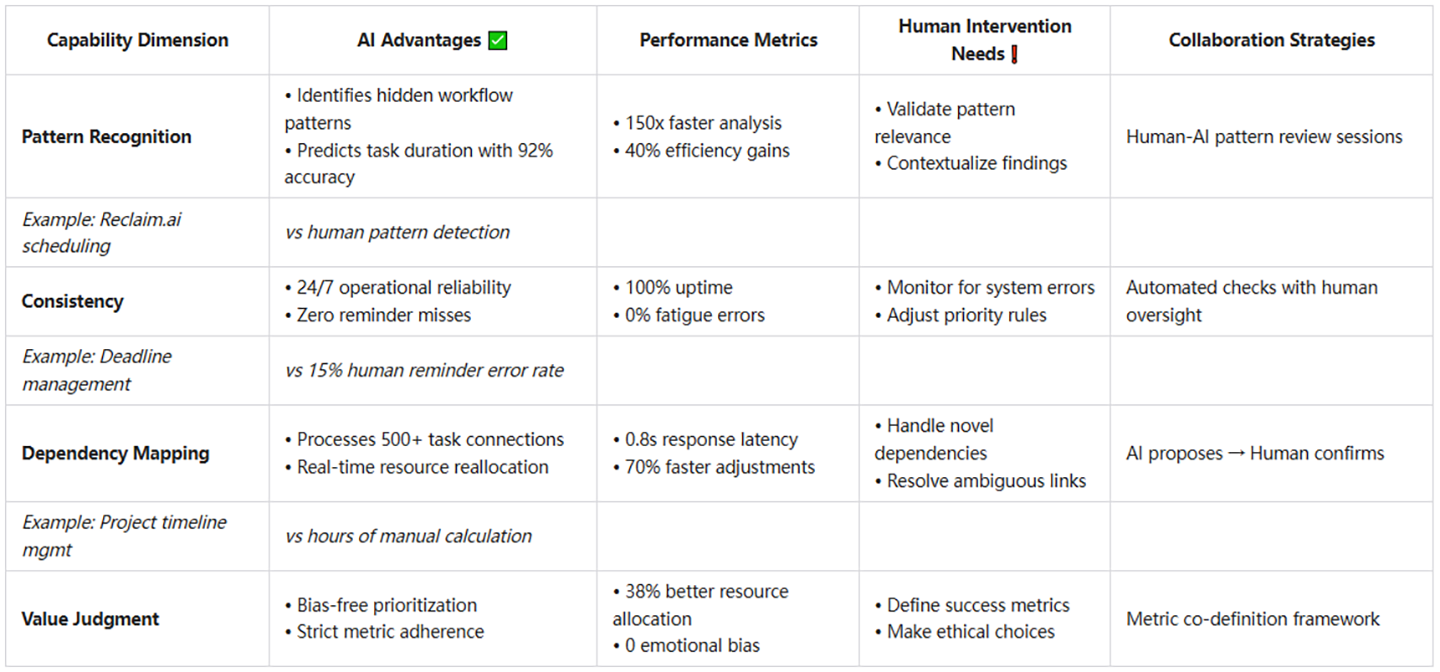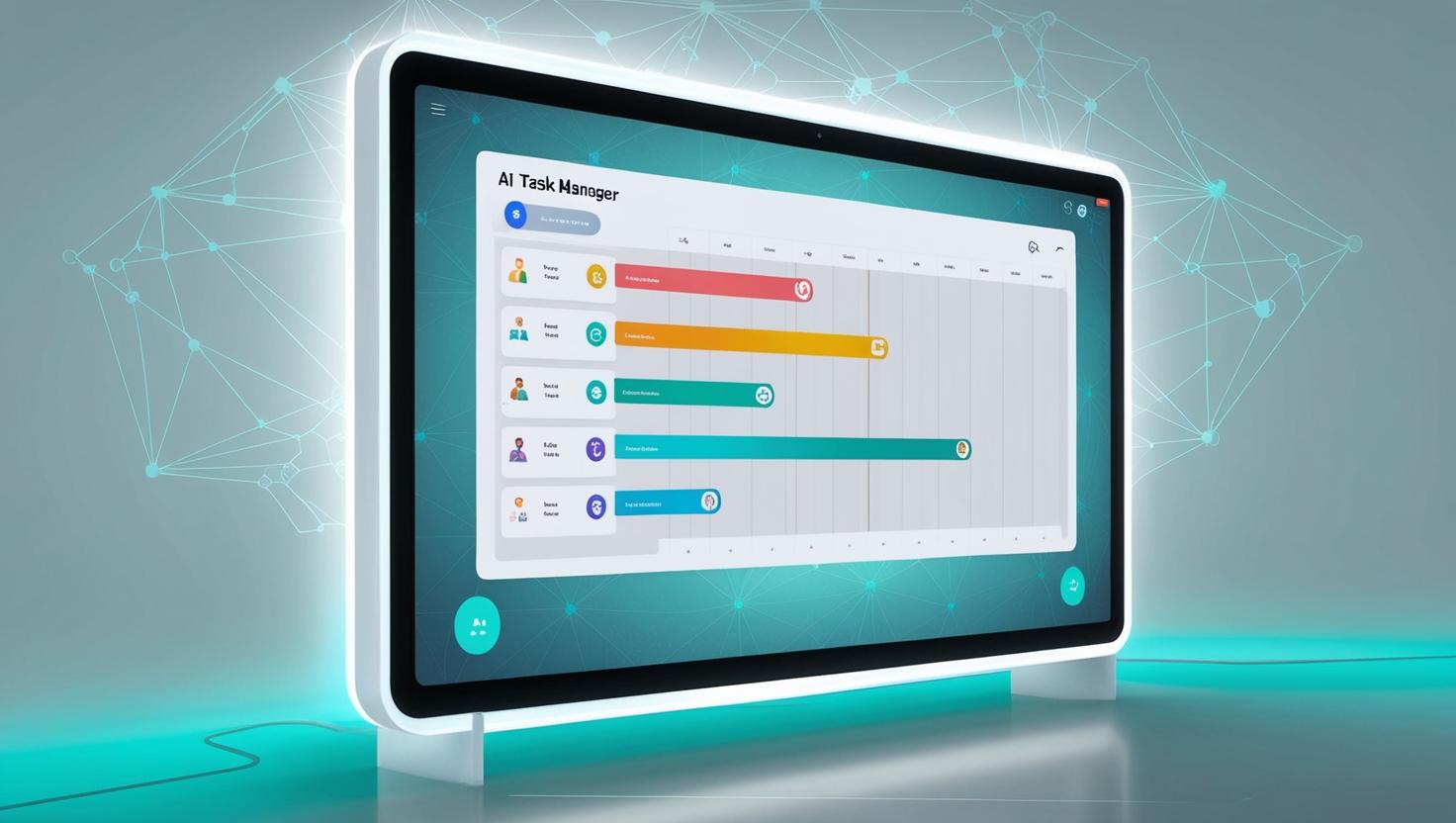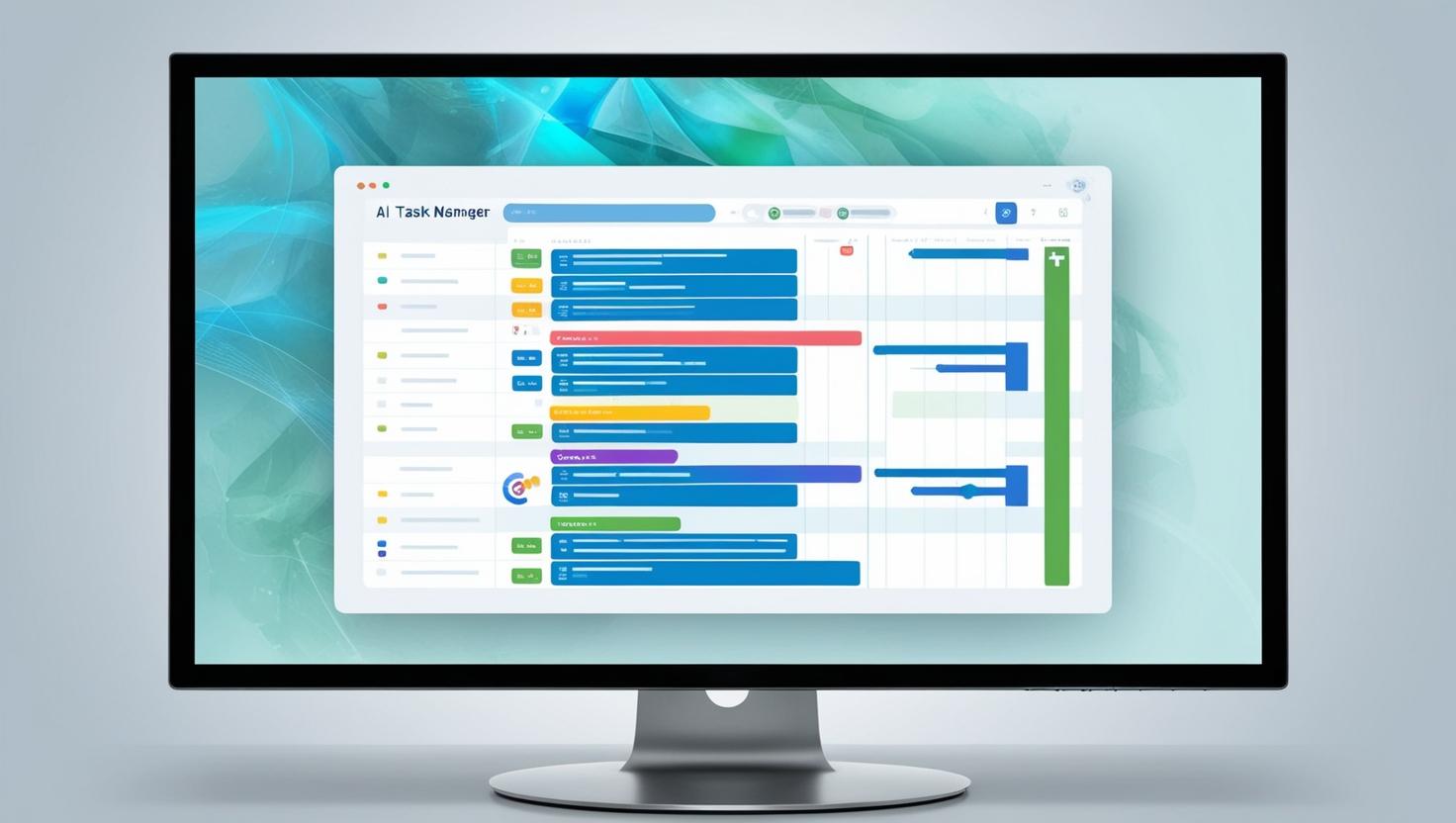The AI task managers have silently revolutionized productivity, evolving from basic digital to-do lists into intelligent systems that anticipate needs and streamline complex workflows. While chatbots and generative AI capture headlines, these practical AI tools quietly transform how millions organize their professional and personal lives. You can now image waking up to an AI assistant that has already rescheduled your morning meetings due to an unexpected traffic delay, prioritized your emails based on urgency, and suggested the optimal time to work on your quarterly report.
The personal AI task manager market speaks volumes about their essential role—projected to reach $9.4 billion by 2028 with a remarkable 23.7% CAGR according to recent analyses. This article explores the evolution of AI task managers, examines their capabilities and limitations, analyzes industry impacts, addresses ethical considerations, and provides guidance on leveraging these tools to enhance rather than replace human capabilities.

How Has the AI Task Manager Evolved Over Time?
The Humble Beginnings: Digital To-Do Lists
The journey of the AI task manager began with basic digital to-do lists in the early 2000s. Applications like Remember The Milk and early versions of Todoist offered simple functionalities: creating tasks, setting due dates, and receiving notifications. These were essentially digital translations of paper planners, with minimal "intelligence" involved.
The first glimpse of AI in task management came around 2010-2012 when apps started incorporating basic natural language processing. Products like Wunderlist (later acquired by Microsoft) allowed users to type "Meeting with John tomorrow at 2 pm" and automatically parse this into a scheduled task with the correct parameters.
The AI Integration Phase
The real transformation began around 2015-2017 when machine learning algorithms were integrated into task management systems. Microsoft's Cortana, Apple's Siri, and Google Assistant started offering task management capabilities that could:
- Predict recurring tasks based on user behavior
- Suggest optimal times for task completion based on past performance
- Automatically categorize tasks into projects or areas of focus
This phase marked the true emergence of the AI task manager as we recognize it today. Companies like Asana and Monday.com began incorporating AI features that could analyze work patterns and suggest optimizations.
The Current Generation: Contextual and Predictive AI Task Managers
Today's AI task management tools have evolved dramatically. Products like Notion AI, ClickUp AI, and specialized personal AI task manager applications like Motion and Reclaim have revolutionized the space with capabilities that seemed like science fiction just five years ago:
- Predictive task creation based on email and message content
- Automatic meeting scheduling that considers energy levels and focus time
- Smart prioritization algorithms that adapt to changing deadlines and project scopes
- Natural language interfaces that allow conversation-like interaction
- Integration with other AI systems for comprehensive workflow automation
The task manager AI systems of 2023-2024 use sophisticated machine learning models, often built on large language model foundations, that can understand context, learn from user behavior, and even anticipate needs before they're explicitly stated.
Core Technologies Driving Modern AI Task Managers
Current AI task managers rely on several key technologies:
1. Natural Language Processing (NLP): Understanding user inputs in conversational language
2. Machine Learning: Identifying patterns in user behavior to predict needs
3. Contextual Awareness: Understanding the relationships between tasks, people, and projects
4. Reinforcement Learning: Improving recommendations based on user feedback
5. Integration APIs: Connecting with other software systems to create cohesive workflows
These technologies combine to create task management AI systems that can handle increasingly complex problems, from managing simple personal to-do lists to orchestrating enterprise-wide project workflows with hundreds of interdependencies.
What Are the Strengths and Limitations of AI Task Managers?
Where AI Task Managers Excel
The capabilities of AI task managers significantly outperform traditional task management in several domains:
Superior Pattern Recognition
AI task management tools excel at identifying patterns that humans might miss. By analyzing historical data, these systems can predict which tasks typically take longer than estimated, which team members are most efficient with certain types of work, and even which times of day are optimal for different activities.
For example, the AI task manager Reclaim can analyze your calendar and work patterns to automatically schedule focus time during your most productive hours while pushing meetings to times when you're typically less focused on deep work.
Tireless Consistency
Unlike humans who experience fatigue, AI task managers maintain consistent performance regardless of time or workload. They never forget to send reminders, never miss a recurring task, and never fail to notify stakeholders of approaching deadlines.
Rapid Processing of Complex Dependencies
Modern projects often involve dozens or hundreds of interconnected tasks with complex dependencies. AI task management tools can process these relationships instantaneously, reallocating resources and adjusting timelines when changes occur in ways that would take humans hours of manual calculation.
Emotion-Free Prioritization
Human prioritization is often influenced by cognitive biases—we tend to focus on what's urgent rather than what's important, or what's enjoyable rather than what's necessary. AI task managers can apply objective criteria consistently, ensuring that work is prioritized according to actual impact and strategic value.
Limitations and Human Intervention Points
Despite their impressive capabilities, AI task managers still face significant limitations:
Contextual Understanding Gaps
While AI systems have improved dramatically in understanding context, they still struggle with the nuanced understanding that humans possess naturally. A personal AI task manager might schedule an important client meeting during your child's school performance because it doesn't understand the emotional significance of the latter event unless explicitly told.
This limitation stems from AI's fundamental inability to experience emotions or truly understand human values without explicit programming.
Creative Problem-Solving Deficiencies
When novel situations arise that don't match historical patterns, AI task managers often falter. They excel at optimization within known parameters but struggle with the creative leaps that humans make easily when confronted with unprecedented situations.
Value Judgment Limitations
Perhaps most importantly, AI task managers cannot independently make genuine value judgments. They can optimize for metrics we provide—time, cost, resource utilization—but cannot decide what's truly "important" in a human sense without our guidance.

How Is the AI Task Manager Impacting Various Industries?
The implementation of AI task managers is reshaping numerous industries in both positive and potentially disruptive ways.
Positive Industry Transformations
Healthcare Workflow Optimization
In healthcare settings, AI task management tools are revolutionizing patient care coordination. Hospitals implementing these systems report up to 35% reduction in administrative workload for nursing staff, allowing more time for direct patient care. AI task managers can prioritize patient needs based on severity, track medication schedules, and ensure follow-up procedures happen on time.
Software Development Efficiency
The software development industry has seen dramatic productivity improvements through AI task management. Companies like GitHub and Atlassian have integrated AI tools that can:
- Automatically assign bugs to the most qualified developers based on expertise
- Predict development timelines with 40% greater accuracy than human estimates
- Identify potential bottlenecks before they impact project timelines
Education and Research
Academic institutions are using AI task managers to coordinate complex research projects and manage educational workflows. These systems help researchers track experiment schedules, manage publication pipelines, and coordinate collaborative efforts across institutions. For educators, they help balance teaching loads, grading schedules, and student interventions based on performance data.
Industries Facing Disruption
Middle Management Roles
Perhaps the most significant disruption is occurring in traditional middle management. Many coordination and monitoring functions traditionally performed by middle managers can now be automated through task management AI. Companies report reduction of up to 20% in middle management positions after implementing comprehensive AI task management systems.
Administrative Assistants
The role of administrative assistants is being redefined as AI task managers take over scheduling, reminder, and basic coordination functions. While not eliminating these positions entirely, the nature of the work is shifting toward more strategic and interpersonal responsibilities that AI cannot handle.
Project Management Consultancies
Traditional project management consulting firms are facing pressure as AI task managers provide many of the same optimization services at a fraction of the cost. These firms are rapidly pivoting toward more strategic advisory roles and customization of AI systems rather than direct management of project workflows.
For professionals in these disrupted fields, the path forward (which I'll elaborate on later) involves developing complementary skills that AI cannot replicate—particularly in areas of emotional intelligence, creative problem-solving, and ethical decision-making.
What Ethical Concerns Surround AI Task Managers?
The rapid adoption of AI task managers raises several significant ethical concerns that demand our attention:
Privacy and Surveillance Concerns
Modern AI task manager applications require extensive data to function effectively. They track work patterns, analyze communication, and monitor productivity metrics. This level of surveillance raises important questions about worker privacy and autonomy.
A 2023 survey revealed that 68% of employees report increased stress when they know their work patterns are being closely monitored by AI systems. Furthermore, there are legal questions about the extent to which employers can monitor employee activities, with regulations varying significantly across jurisdictions.
Algorithmic Bias and Fairness
AI task managers learn from historical data, which may contain existing biases. For instance, if past project assignments reflected gender or racial biases, the AI system may perpetuate these patterns in its recommendations.
Research has shown that some AI task management systems consistently assign more administrative tasks to female team members and more technical tasks to male team members when learning from historical assignment patterns, despite equivalent qualifications.
Dependency and Deskilling Risks
As we rely more heavily on AI task managers, there's a risk of cognitive deskilling. The ability to mentally organize, prioritize, and manage complex workflows is a valuable cognitive skill that may atrophy with excessive dependence on AI systems.
Psychologists have raised concerns that excessive reliance on external management systems may reduce our internal locus of control and sense of agency over our work lives.
Accountability for Algorithmic Decisions
When an AI task manager makes a poor allocation decision or misses a critical deadline, who bears responsibility? This question of accountability becomes increasingly complex as AI systems make more autonomous decisions with less human oversight.
The legal frameworks for AI accountability remain underdeveloped in most countries, creating uncertainty about liability when AI task management decisions lead to negative outcomes.

How Can We Responsibly Leverage AI Task Managers?
Given both the tremendous potential and significant concerns surrounding AI task managers, how can individuals and organizations leverage these tools responsibly?
Strategies for Disrupted Industries
For professionals whose roles are being transformed by AI task managers, several adaptation strategies can create sustainable career paths:
Develop Complementary Human Skills
The most automation-resistant skills involve emotional intelligence, ethical reasoning, creative problem-solving, and interpersonal negotiation. Administrative professionals can evolve into roles focusing on stakeholder management and complex communication tasks that AI cannot handle effectively.
Become AI Task Manager Specialists
Rather than competing with AI, professionals can specialize in implementing, customizing, and optimizing AI task management tools. offering a promising career path for those willing to develop technical expertise in these systems.
Focus on Strategic Decision-Making
While AI task managers excel at optimization within defined parameters, they struggle with fundamental strategic questions. Professionals who can articulate value propositions, align work with organizational purpose, and make ethical judgments will remain essential even as tactical management becomes automated.
Ethical Implementation Guidelines
Organizations implementing AI task management tools should adhere to several core principles:
Transparency and Consent
Employees should understand what data is being collected, how it's being used, and what decisions are being made algorithmically. Implementing a clear opt-in policy rather than mandatory participation can reduce resistance and ethical concerns.
Human Oversight and Appeal Processes
AI task manager decisions should not be final and unappealable. Effective implementations maintain human oversight and clear processes for appealing or overriding algorithmic decisions when they seem inappropriate or unfair.
Regular Bias Auditing
Organizations should conduct regular audits of their AI task management systems to identify and correct potential biases. This includes analyzing task assignments, time allocations, and promotion recommendations across demographic groups.
Balanced Metrics
AI task managers should be configured to optimize for a balanced set of metrics—not just productivity and efficiency, but also employee wellbeing, work satisfaction, and long-term development.
Personal AI Task Manager Usage Recommendations
For individuals using personal AI task manager applications, these guidelines can help maximize benefits while minimizing risks:
Maintain Critical Thinking
Don't blindly accept AI recommendations. Regularly question whether the priorities suggested by your task manager truly align with your values and goals.
Practice Intentional AI Breaks
Schedule regular periods where you manage tasks without AI assistance to maintain your native organizational skills and agency.
Focus on Teaching Rather Than Delegating
The most effective approach to AI task managers is thinking of them as systems to be taught rather than servants to be commanded. Invest time in helping your AI task manager understand your preferences, values, and working style.
Start With Small, Non-Critical Tasks
When adopting a new AI task management tool, begin with low-stakes tasks while you learn the system's capabilities and limitations. Gradually increase the importance of tasks as you build confidence in the system's reliability.
FAQs About AI Task Managers
Q: What makes a task manager "AI-powered" versus just a digital to-do list?
A: A true AI task manager incorporates machine learning algorithms that learn from your behavior and improve over time. Key features include automatic task creation from communication channels, predictive scheduling based on past performance, intelligent prioritization that adapts to changing circumstances, and natural language interfaces for task creation and management.
Q: Are AI task managers worth the investment for small businesses?
A: For small businesses, the ROI of AI task management tools depends on workflow complexity. Organizations with straightforward, consistent workflows may not see sufficient benefits to justify the cost and learning curve. However, businesses with complex project management needs, multiple team members, or variable workloads often report significant efficiency gains that justify the investment within 3-6 months.
Q: How can I protect my privacy when using an AI task manager?
A: Review the privacy policy before selecting a tool, focusing on data storage locations, retention periods, and secondary uses. Choose tools that offer local processing options where possible, regularly audit and delete unnecessary data, and use separate accounts for personal and professional task management to maintain appropriate boundaries.
Q: Will AI task managers eventually eliminate project management jobs?
A: Rather than elimination, we're seeing transformation. Routine coordination and scheduling functions are being automated, but this is creating new demand for professionals who can guide AI implementation, interpret results, manage exceptions, and handle the human elements of project management that AI cannot address. The most successful project managers are those who embrace AI task managers as powerful tools rather than viewing them as competition.

Conclusion: The Future of Human-AI Task Management Symbiosis
The AI task manager represents one of the most practical and immediate applications of artificial intelligence in our daily lives. As these systems continue to evolve, we're moving toward a symbiotic relationship where AI handles routine optimization and coordination while humans focus on judgment, creativity, and meaning.
The most effective implementations will be those that recognize both the strengths and limitations of AI task managers—leveraging their computational power and consistency while preserving human judgment for the decisions that matter most. Organizations that strike this balance will gain significant competitive advantages through enhanced productivity without sacrificing the human elements that drive innovation and meaning.
As we navigate this evolution, ongoing conversations about ethics, privacy, and the changing nature of work are essential. The goal isn't to maximize AI task manager capabilities at any cost, but to develop systems that genuinely enhance human potential while respecting fundamental values of autonomy, fairness, and wellbeing.
The future of task management isn't AI replacing humans or humans rejecting AI—it's a thoughtful integration where each contributes what they do best. By approaching AI task managers with both enthusiasm for their potential and careful consideration of their limitations, we can build workflows that are not just more efficient, but more humane.
 Submit Your AI Tool For FREE!Showcase Your Innovation To Thousands Of AI Enthusiasts!
Submit Your AI Tool For FREE!Showcase Your Innovation To Thousands Of AI Enthusiasts! Submit Your AI Tool For FREE!Showcase Your Innovation To Thousands Of AI Enthusiasts!
Submit Your AI Tool For FREE!Showcase Your Innovation To Thousands Of AI Enthusiasts! Submit Your AI Tool For FREE!Showcase Your Innovation To Thousands Of AI Enthusiasts!
Submit Your AI Tool For FREE!Showcase Your Innovation To Thousands Of AI Enthusiasts! Submit Your AI Tool For FREE!Showcase Your Innovation To Thousands Of AI Enthusiasts!
Submit Your AI Tool For FREE!Showcase Your Innovation To Thousands Of AI Enthusiasts! Submit Your AI Tool For FREE!Showcase Your Innovation To Thousands Of AI Enthusiasts!
Submit Your AI Tool For FREE!Showcase Your Innovation To Thousands Of AI Enthusiasts!







No comments yet. Be the first to comment!